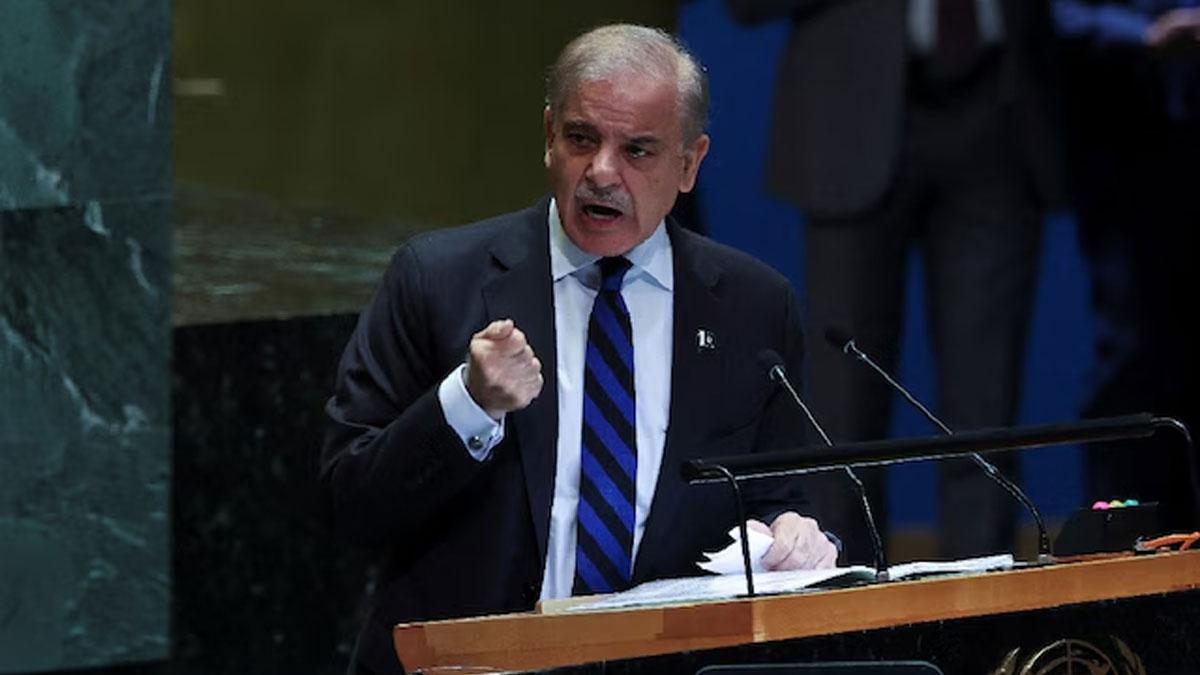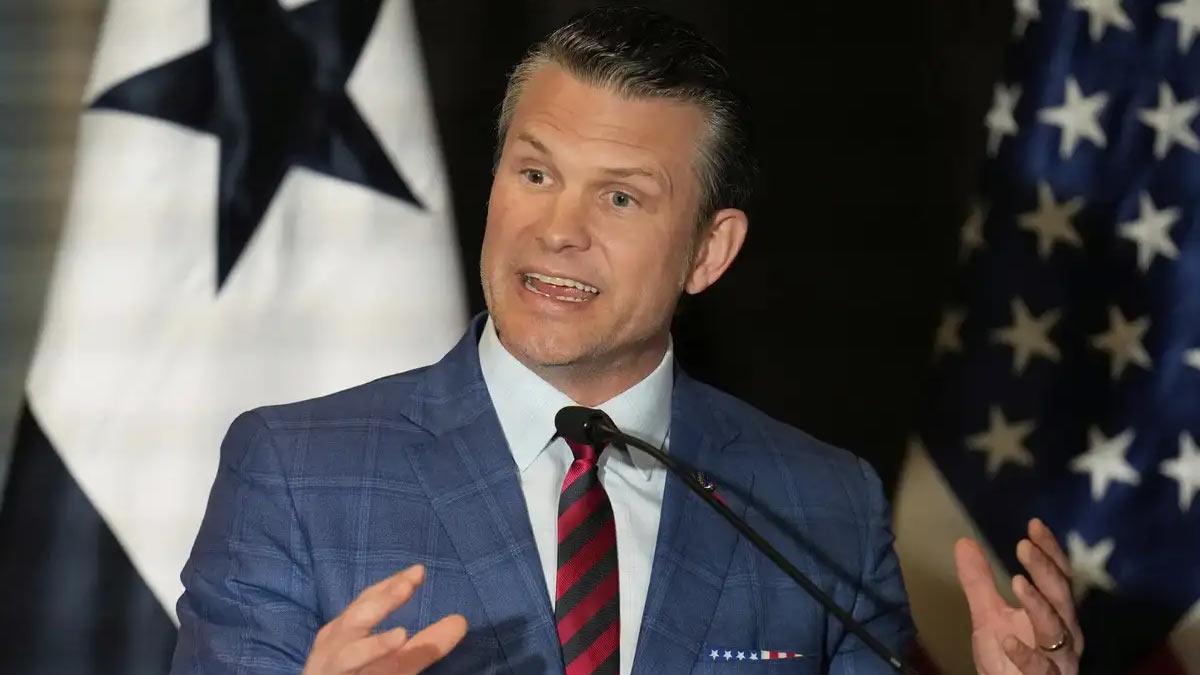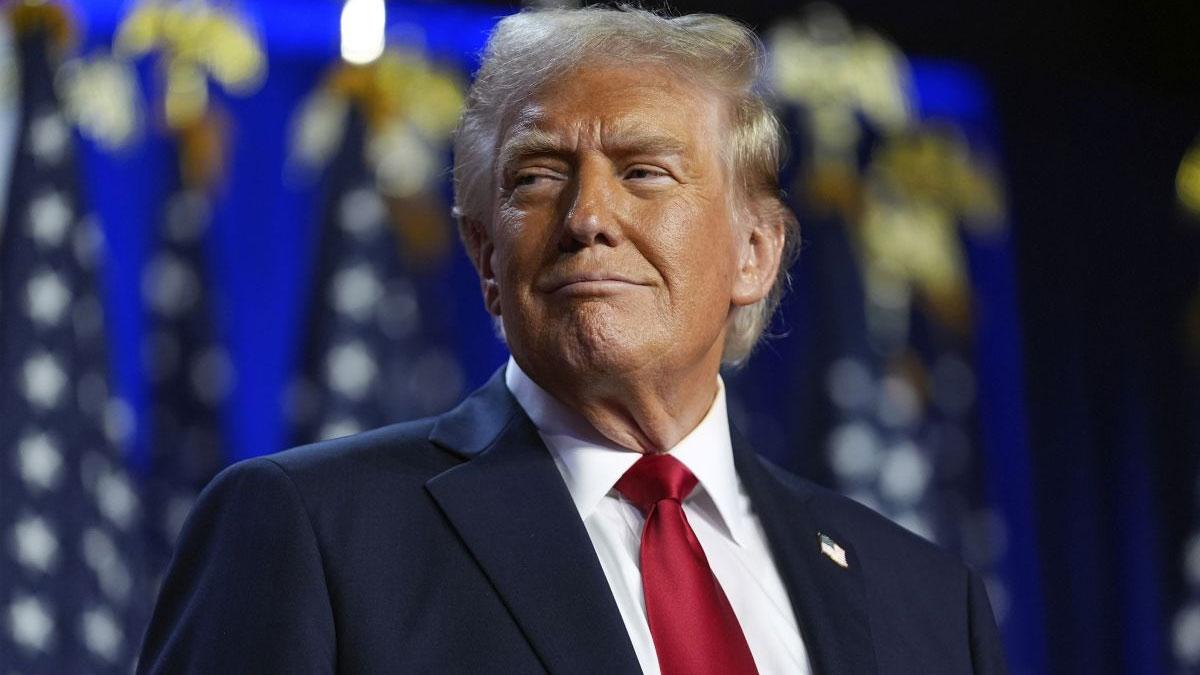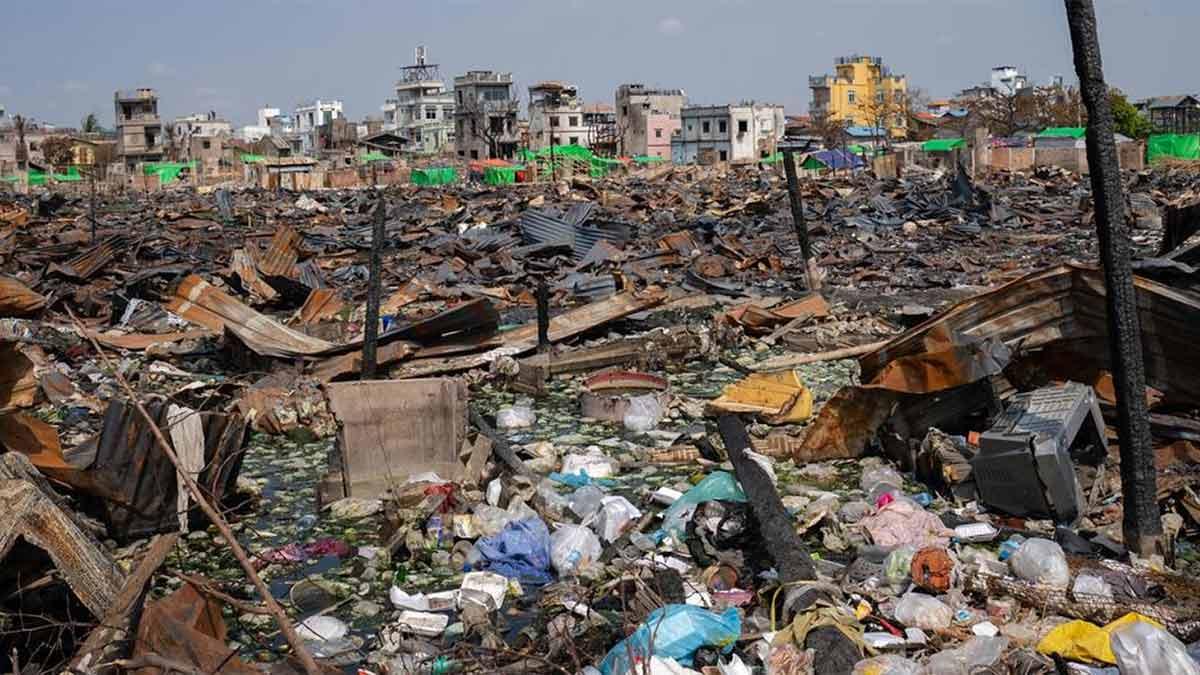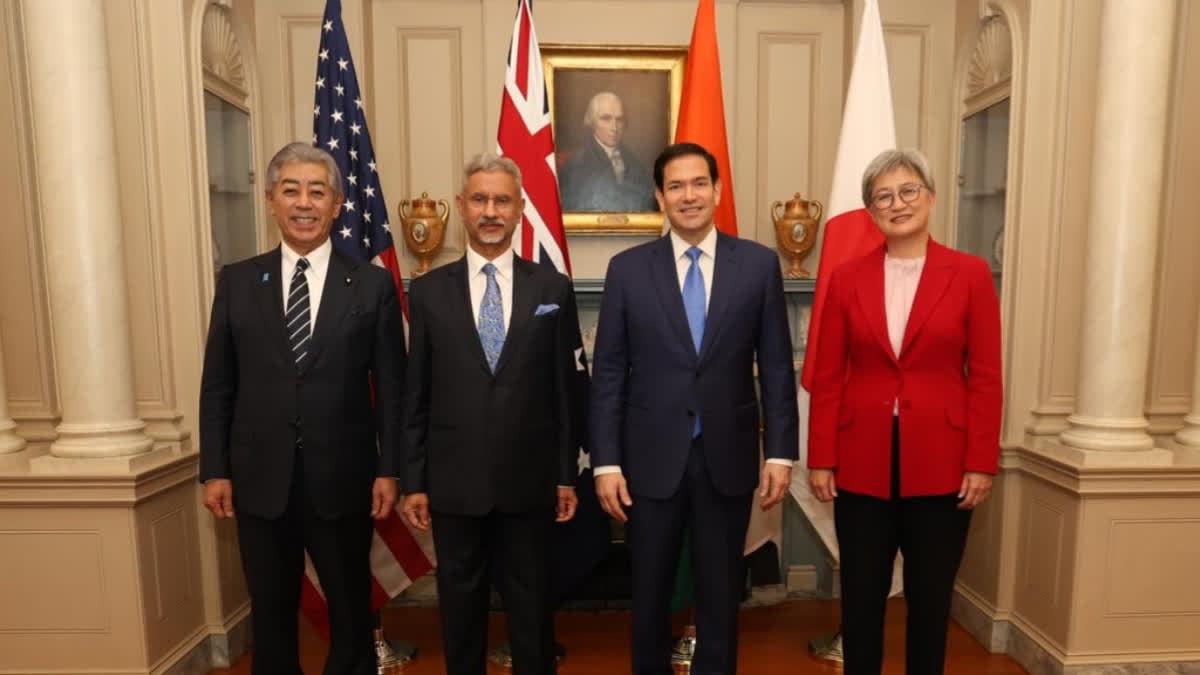Pakistan Prime Minister Shehbaz Sharif on Friday accused India of "massive expansion of its military capabilities" and issuing threats to cross the LoC for taking over Pakistan-Occupied Kashmir, as he raised the Kashmir issue again in his address at the United Nations General Assembly.
Sharif demanded New Delhi reverse the 2019 abrogation of Article 370, which gave Jammu and Kashmir special status, and also charged India with trying to subjugate its Muslim population and obliterate its Islamic heritage.
Pakistan routinely raises the Kashmir issue at the annual UN debate. India was expected to exercise its right of reply to counter Sharif's allegations.
Like the people of Palestine, people have struggled for a century here for their freedom and right to self-determination, which is implicit in every ordinary individual's desire for freedom, human dignity, and the redress of injustice, Sharif said.
Referring to the abrogation of Article 370, Sharif said India must reverse the "unilateral and illegal measures" to secure durable peace and enter into a dialogue for a peaceful resolution of the Jammu and Kashmir issue in accordance with UN Security Council resolutions and "wishes of the Kashmiri people."
Sharif said, while delivering his about 20 minutes long speech that instead of moving toward peace, India has retreated from the commitment to enforce resolutions on Jammu and Kashmir passed by the Security Council.
"These resolutions mandate a plebiscite to enable the people of Jammu and Kashmir to exercise their fundamental right to self-determination," he said.
"Even more worrying," he said during the General Debate of the 79th session of the UN General Assembly, "it is engaged in massive expansion of its military capabilities which are essentially deployed against Pakistan." "Its war doctrines envisage a surprise attack and a limited war under the nuclear overhang," he added.
Sharif said India has rejected his country's offer of a mutual strategic restraint regime, and its leadership has "often threatened to cross the Line of Control" and take over what Pakistan refers to as "Azad Kashmir."
"Let me state in no uncertain terms Pakistan will respond most decisively to any Indian aggression," he added.
The prime minister said Islamophobia has escalated in the world. "The most alarming manifestation of Islamophobia is the Hindu supremacist agenda in India. It aggressively seeks the subjugation of 200 million Muslims and the obliteration of India's Islamic heritage," he claimed.
Raising allegations regarding Jammu and Kashmir in earlier UN debates, New Delhi has reiterated time and again that the region is an integral and inalienable part of India.
Sharif mentioned the situation in Gaza, Ukraine, and Afghanistan.
Today, we face the greatest threats to global security, he said, citing "Israel's genocidal war in Gaza, a dangerous conflict in Ukraine, deadly conflicts across Africa and Asia, rising geopolitical tensions, the resurgence of terrorism, galloping poverty, stifling debt, and the mounting impact of climate change.".
He said about Gaza, "This is not just a conflict. This is systematic slaughter of innocent people of Palestine. we must act now and demand an immediate end to this bloodshed." He said Pakistan desires an "immediate end" to the "tragic conflict" in Ukraine and its peaceful resolution in accordance with the UN Charter and international agreements.
Pakistan wanted the situation in Afghanistan normalized as soon as possible and it is for the "interim government" to act effectively in ways and manners that will neutralize all terrorist groups within Afghanistan, especially those crossing over the borders and attacking the neighboring countries, said Sharif.
These include, he said, ISIL-K, Daish, al Qaeda-associated Tehrik-e Taliban Pakistan (TTP), and other terrorist groups that can be unfortunately spotted on Afghan territory.

